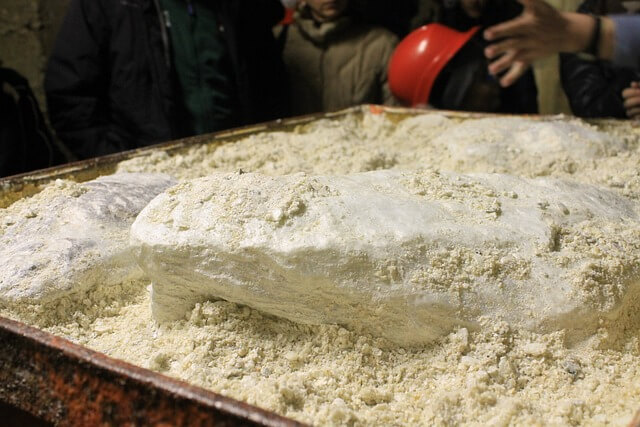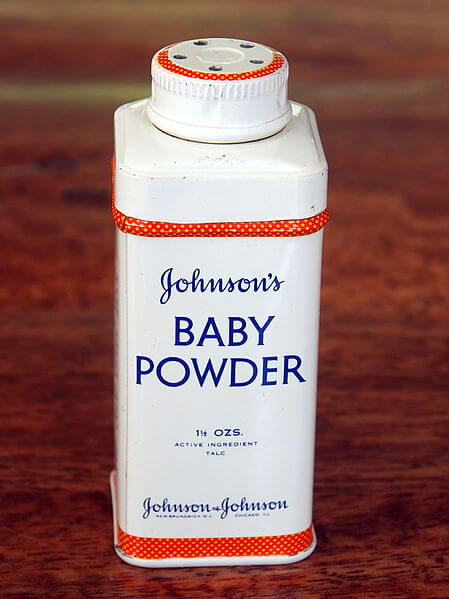Asbestos in Talcum Powder – The Dangers
Last Updated on 1 November 2023
Talcum powder, a widely used product found in many homes, has recently faced increased scrutiny over potential asbestos contamination.
In this informative article, we will explore the world of asbestos in talcum powder as we separate fact from fiction and present you with reliable information.
Let’s delve into the possible risks, safety precautions, and commonly asked questions to make sure you have all the information you need.
Understanding Talcum Powder
Talcum powder has been a household staple for generations and is commonly used for its soothing and drying properties. It is made from a finely ground mineral that is mainly composed of talc. It is used in a wide range of personal care products, such as baby powder and cosmetics. Talcum powder has a long history and is commonly found in households.
Understanding Asbestos
Asbestos is a naturally occurring mineral fibre that was used extensively in various industries such as construction, automotive, and textiles because of its exceptional heat-resistant and insulating qualities. Nevertheless, thorough research has uncovered the detrimental effects of asbestos exposure, which can result in serious health issues such as lung cancer, asbestosis, and mesothelioma.
Risks Associated with Asbestos in Talcum Powder
In the past, certain talc mines were found near asbestos deposits. Due to being in close proximity, there was unintentional mixing, which compromised the safety of talc-based products.
More recently, there have been growing concerns about the potential health risks associated with long-term use of talcum powders due to the presence of asbestos. The link between asbestos and talcum powder became apparent when asbestos-contaminated talc was discovered in some products. When talc deposits are not carefully mined and processed, they can become contaminated with asbestos, a fact that raised significant concern.
Breathing in asbestos fibres can cause respiratory issues, and long-term exposure can heighten the chances of developing diseases and cancers associated with asbestos, such as mesothelioma. The latent nature of these diseases often means that symptoms appear long after initial exposure.
However, It’s important to mention that numerous talcum products have been thoroughly tested to guarantee they do not contain asbestos.
But there’s a caveat here. There’s strong evidence now available that suggests the accepted testing methods may be floored. This is due to fibres avoiding detection during sample preparation. Dr Sean Fitzgerald in the US has shown other sample preperation techniques will reveal the presence of asbestos when traditional methods do not.

Natural talc that has been mined and could contain asbestos traces
Legal Battles and Regulatory Measures
Manufacturers including Johnson & Johnson have faced a multitude of legal cases due to the discovery of asbestos in talcum powder. Plaintiffs have alleged that their health problems were caused by the use of talcum powder, resulting in significant compensation claims.
As a result, regulatory agencies have implemented more stringent guidelines on talc mining and processing to reduce the risk of asbestos contamination. Manufacturers have also been forced to comply with elevated safety standards.
Safe Alternatives to Talcum Powder
With the growing concerns about talcum powder, a lot of people are looking for substitutes for their personal hygiene and cosmetic needs. Many people choose to use products that are free of talc or explore natural alternatives such as powders made from cornflour.
If you wish to continue using talcum powder, it’s essential to take precautions. Limit exposure, avoid inhalation, and use talc-based products sparingly, especially with infants.

An old tin of Johnson & Johnson baby powder that may have contained asbestos. The company have always strongly denied that it did, but have since stopped producing the product using talc and now use cornflour in their baby powder instead.
Talcum Powder Myths
There are several myths surrounding talcum powder and its asbestos content. Let’s debunk a few of them:-
Myth 1: All Talcum Powders Contain Asbestos
- Fact: Not all talcum products contain asbestos. Many manufacturers have refined their products to remove any asbestos traces, ensuring consumer safety. However, as outlined above, this is not necessarily a guarantee.
Myth 2: Talcum Powder Poses an Immediate Threat
- Fact: The health risks associated with talcum powder arise from prolonged and repeated exposure. Occasional use is generally considered safe, with a caveat – The World Health Organization who say there is no known safe level of exposure to asbestos.
Myth 3: Asbestos in Talcum Powder Is a Recent Discovery
- Fact: Concerns about asbestos in talc date back several decades.
Frequently Asked Questions
Q: Is all talcum powder asbestos-free?
A: While it is true that not all talcum powder is asbestos-free, it is worth noting that many reputable brands have taken steps to remove asbestos from their products. Again, this is no guarantee.
Q: Is it advisable to completely discontinue the use of talcum powder?
A: If you’re worried about asbestos exposure, you might want to consider using alternative products. It is important to seek guidance from a healthcare professional for personalised advice.
Q: Do talcum powders containing asbestos have the potential to cause cancer?
A: Prolonged and repeated exposure to talc products that contain asbestos may potentially heighten the risk of developing certain types of cancer. Nevertheless, the likelihood of any potential harm is typically small. Saying that, the World Health Organization WHO have said that there is no safe level of asbestos exposure. So even though the risks are minimal, is it worth taking the risk?
Q: How can I determine if my talcum powder is free of asbestos?
A: There’s an old adage – if you want a guarantee…..buy a toaster. If you want to guarantee there’s no asbestos in your talc, don’t buy talc products!
Q: What should I do if I’ve used talcum powders with asbestos in the past?
A: If you have any concerns about your past use, it’s a good idea to talk to a healthcare professional about your health history.
Q: Are there any alternatives to talcum powder that are considered safer?
Yes, there are alternative options to talcum powder, like powders made from cornflour, which are generally considered to be safer. Talc free cosmetics are easily available.
Conclusion
Ultimately, it is crucial to have a comprehensive understanding of the intricate nature of asbestos in talcum powder in order to make well-informed decisions about its usage. Despite some concerns and controversies, the majority of talcum powder products available in the market are currently considered safe for consumer use.
However, as we have seen, there is no guarantee and the body of evidence to counter this is growing.
So choosing trustworthy brands, reviewing product labels, and seeking guidance from healthcare professionals is essential, especially if you have specific health concerns.
By adhering to these guidelines, you can experience the advantages of talcum powder without any unnecessary concerns. Or just stop using talc?
Need asbestos advice?
We hope you found our article on asbestos in talcum powder both useful and informative. If you need any help or advice at all with any aspect of asbestos then we’ll be very happy to assist you. Give us a call and our experts will give you some advice and guidance on whatever if is you’re concerned about.
Please contact us on 0800 141 2676, email us at info@rbasbestos.co.uk or fill in the form below.
Our professional asbestos surveyors conduct asbestos inspections and asbestos surveys every day across the UK on all types of properties, both residential and commercial, for private home owners and commercial property Managers and owners. So when it comes to managing asbestos in your property, you’re in very safe hands with RB Asbestos Consultants.

